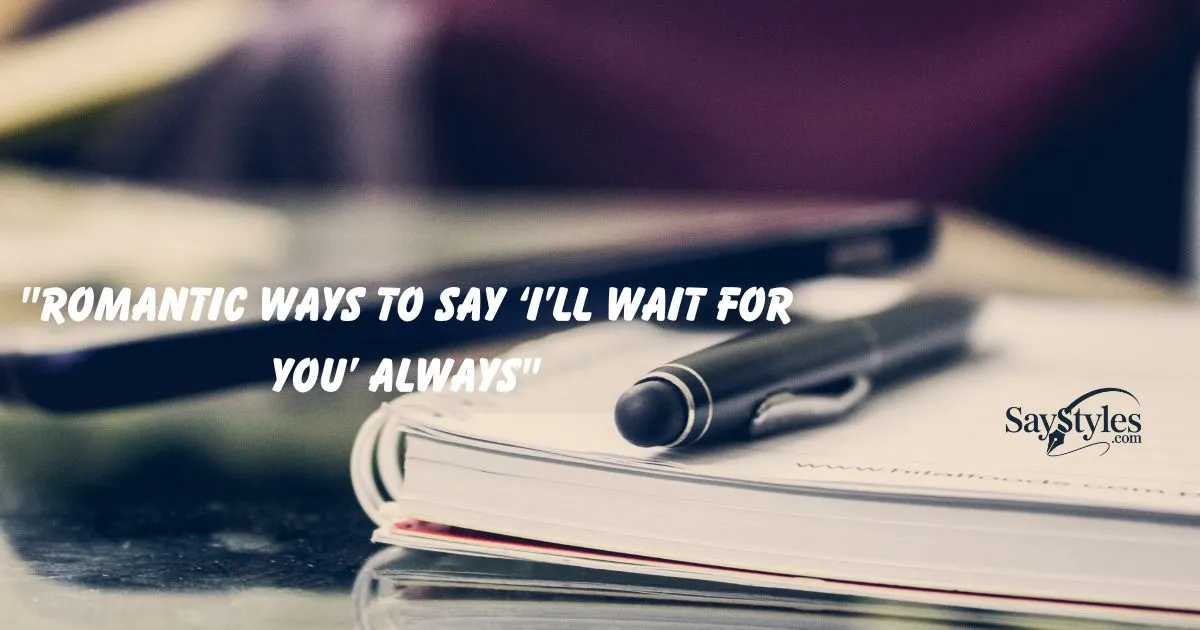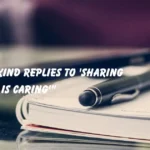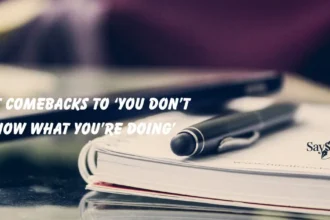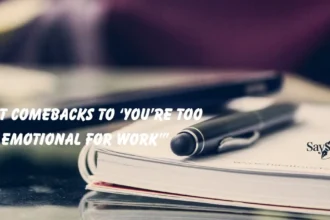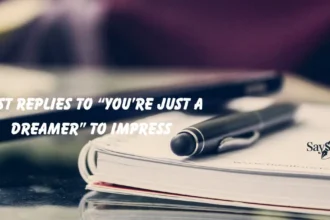“When love is true, saying ‘I’ll wait for you’ isn’t hard it’s natural.” 💖
There’s something so romantic about the promise to wait for someone. It shows loyalty, hope, and a heart that’s willing to hold on. As someone who believes in real connection, I’ve always found those simple words deeply meaningful. They’re not just words, they’re a quiet vow of love that whispers, “You’re worth the wait.”
In life, we all go through moments where distance or time comes between us and someone we care about. Whether it’s a long-distance relationship, a break for healing, or waiting during hard times—how you say “I’ll wait for you” can make all the difference. The way we speak love should feel warm, honest, and full of heart.
In this article, you’ll find romantic ways to say ‘I’ll wait for you’ , words that touch the soul and make someone feel truly valued. Each phrase is simple, sweet, and perfect for texting, letters, or face-to-face moments. Let’s dive in and find the perfect way to say it straight from the heart. ❤️
1. “I’ll be here whenever you’re ready.”
Story:
Emily felt emotionally exhausted after losing her job and pulled away from everyone. Her close friend, Jacob, noticed her silence but chose to respect her space. Instead of texting often, he simply sent one message: “I’ll be here whenever you’re ready.”
When to Use:
Use this when someone you care about needs emotional space but hasn’t cut ties with you. It reassures them you’re available without pressure.
When Not to Use:
Avoid this when someone has clearly communicated they want to end the relationship or asked for complete no contact. Using it in that context can come off as intrusive.
Example:
Emily: “I just need to be alone for a bit.”
Jacob: “I’ll be here whenever you’re ready.”
How to Respond 🗣️:
“Thanks for understanding. I’ll reach out when I’m ready to talk.”
2. “Take your time; I’m waiting for you.”
Story:
Zoya felt overwhelmed after a family argument and stopped replying to messages. Her friend Ali didn’t push her for answers. Instead, he sent a calm message saying, “Take your time; I’m waiting for you.”
When to Use:
When someone needs time to cool down or reflect, especially after a stressful moment.
When Not to Use:
Don’t use this when someone has asked for no contact or seems to be avoiding communication permanently.
Example:
Zoya: “I just need to be alone right now.”
Ali: “Take your time; I’m waiting for you.”
How to Respond 🗣️:
“Thank you for not pressuring me. That means a lot.”
3. “I’ll wait as long as it takes.”
Story:
After a breakup, Ayaan realized he still cared deeply for Hira. He told her sincerely, “I’ll wait as long as it takes,” hoping she’d return when she was ready.
When to Use:
When you’re committed to someone who needs time to heal or find clarity.
When Not to Use:
Avoid this if it’s clear the other person has moved on and waiting may harm your emotional health.
Example:
Hira: “I don’t know if I’m ready to talk.”
Ayaan: “I’ll wait as long as it takes.”
How to Respond 🗣️:
“I needed to hear that. Thank you for not giving up.”
4. “No matter how long, I’ll be here.”
Story:
Fatima had to travel abroad for treatment. Her fiancé, Sami, reassured her, “No matter how long, I’ll be here,” and kept his promise throughout her journey.
When to Use:
Best when someone is going through a long-term challenge and needs unwavering support.
When Not to Use:
Don’t use it if you’re unsure about maintaining the same level of emotional availability.
Example:
Fatima: “This could take months.”
Sami: “No matter how long, I’ll be here.”
How to Respond 🗣️:
“I feel safe knowing you’re still by my side.”
5. “I’m patiently waiting for your return.”
Story:
Tariq and Mehwish had a misunderstanding that led to distance. Tariq didn’t push her to resolve things quickly. He just said, “I’m patiently waiting for your return.”
When to Use:
Use when someone steps away but hasn’t closed the door on the relationship.
When Not to Use:
Don’t say this if the relationship ended on final terms or if you’re unsure of your patience.
Example:
Mehwish: “I need time to think.”
Tariq: “I’m patiently waiting for your return.”
How to Respond 🗣️:
“Thank you for giving me space and still being here.”
6. “Whenever you’re ready, I’ll be here.”
Story:
Lena had been through a breakup before and feared opening up to new love. Rehan, who truly cared, didn’t rush her. He simply reminded her, “Whenever you’re ready, I’ll be here.”
When to Use:
Use it when someone is scared or hesitant to move forward in a relationship.
When Not to Use:
Avoid this if you feel like your time is being taken for granted or unappreciated.
Example:
Lena: “I don’t want to hurt you if I’m not ready.”
Rehan: “Whenever you’re ready, I’ll be here.”
How to Respond 🗣️:
“That’s really kind. I needed to hear that.”
7. “I’m here for you, no matter what.”
Story:
After losing her job, Sana pushed everyone away. Her childhood friend Zain simply texted, “I’m here for you, no matter what,” letting her know he wasn’t going anywhere.
When to Use:
Use it when someone is going through something heavy and needs emotional support.
When Not to Use:
Avoid it if the person has become toxic or abusive toward you.
Example:
Sana: “I don’t think anyone understands.”
Zain: “I’m here for you, no matter what.”
How to Respond 🗣️:
“Thank you for not judging me when I feel low.”
8. “Take all the time you need; I’m waiting.”
Story:
Kiran faced anxiety before starting therapy and distanced herself from her friend Bilal. Instead of getting upset, Bilal calmly messaged, “Take all the time you need; I’m waiting.”
When to Use:
When someone is mentally or emotionally not ready to talk or interact.
When Not to Use:
Don’t use this if you’re under pressure to move on or resolve things quickly.
Example:
Kiran: “I’m not in the right space to talk.”
Bilal: “Take all the time you need; I’m waiting.”
How to Respond 🗣️:
“That means more than you know.”
9. “I’m holding on until you’re ready.”
Story:
Waleed wanted to get back together with Sara, but she was unsure. He told her softly, “I’m holding on until you’re ready,” giving her time without pressure.
When to Use:
When you believe in the connection and want to show emotional commitment.
When Not to Use:
Avoid it if holding on causes pain or prevents your personal growth.
Example:
Sara: “I’m still unsure about everything.”
Waleed: “I’m holding on until you’re ready.”
How to Respond 🗣️:
“Thanks for not rushing me. I appreciate your honesty.”
10. “I’ll be here through it all.”
Story:
After Areeba’s father passed away, she shut down emotionally. Her best friend Danish stayed quietly by her side and told her, “I’ll be here through it all.”
When to Use:
Best used during tough life events like loss, sickness, or depression.
When Not to Use:
Don’t say this if you can’t emotionally handle the journey with the person.
Example:
Areeba: “Everything feels heavy right now.”
Danish: “I’ll be here through it all.”
How to Respond 🗣️:
“I’m so lucky to have someone like you.”
11. “No rush; I’ll wait for you.”
Story:
After a tough semester, Asma needed to step away from everyone to recover mentally. Her friend Yasir didn’t push her and said, “No rush; I’ll wait for you.”
When to Use:
Use it when someone needs time without pressure or deadlines.
When Not to Use:
Don’t use it when there’s a time-sensitive decision or when someone has already moved on.
Example:
Asma: “I don’t know when I’ll be ready.”
Yasir: “No rush; I’ll wait for you.”
How to Respond 🗣️:
“You’re really understanding. Thank you.”
12. “I’m here, ready when you are.”
Story:
Nadia wasn’t ready to reconnect after a misunderstanding. Her cousin Hamza gave her space but reminded her, “I’m here, ready when you are.”
When to Use:
Use when you’ve had a disagreement, and you’re open to rebuilding when the other person is.
When Not to Use:
Avoid it if the other person has made it clear they don’t want to reconnect.
Example:
Nadia: “I’m still hurt, but maybe someday.”
Hamza: “I’m here, ready when you are.”
How to Respond 🗣️:
“Thanks for not shutting the door on us.”
13. “I’ll be waiting with open arms.”
Story:
After moving abroad, Hassan and Noor lost touch. Years later, Hassan reached out and said, “I’ll be waiting with open arms,” hoping to reconnect.
When to Use:
Use it when someone you love is distant but the bond still feels alive.
When Not to Use:
Don’t use it if the relationship ended with harsh closure or clear separation.
Example:
Noor: “It’s been years, I don’t know where we stand.”
Hassan: “I’ll be waiting with open arms.”
How to Respond 🗣️:
“That’s really comforting. I needed to hear that.”
14. “I’ll wait for you, no matter the distance.”
Story:
Samiya went abroad for studies. Her boyfriend Faraz promised to stay committed and said, “I’ll wait for you, no matter the distance.”
When to Use:
Use this in long-distance relationships or situations where someone must go away for a while.
When Not to Use:
Avoid it if you’re unsure about maintaining long-term emotional connection.
Example:
Samiya: “Four years is a long time.”
Faraz: “I’ll wait for you, no matter the distance.”
How to Respond 🗣️:
“Knowing you’re waiting makes it easier to leave.”
15. “I’m here, just a call away.”
Story:
Mahnoor was struggling silently but didn’t want to burden anyone. Her friend Bilal gently reminded her, “I’m here, just a call away.”
When to Use:
Use this when someone might be afraid to reach out or feels isolated.
When Not to Use:
Avoid using it if you know you won’t be available or responsive in tough moments.
Example:
Mahnoor: “I didn’t want to bother anyone.”
Bilal: “I’m here, just a call away.”
How to Respond 🗣️:
“Thanks, it helps knowing you’re close.”
16. “I’ll wait for you with patience and understanding.”
Story:
Imran noticed his friend Iqra had been distant. Instead of asking too many questions, he just said, “I’ll wait for you with patience and understanding.”
When to Use:
Use it when someone is dealing with internal struggles and needs space to open up.
When Not to Use:
Don’t use it if you don’t truly intend to be patient or if you’re likely to demand quick resolution later.
Example:
Iqra: “I’m trying to process everything.”
Imran: “I’ll wait for you with patience and understanding.”
How to Respond 🗣️:
“That kind of support means a lot.”
17. “Whenever you’re ready, I’ll be here.”
Story:
Sameer confessed his feelings, but Hania wasn’t ready for a relationship. He respected her timing and simply said, “Whenever you’re ready, I’ll be here.”
When to Use:
Use when you care about someone who isn’t ready to take the next step.
When Not to Use:
Avoid it if the other person has clearly declined or rejected your offer or feelings.
Example:
Hania: “I’m not sure I’m ready to date.”
Sameer: “Whenever you’re ready, I’ll be here.”
How to Respond 🗣️:
“I appreciate your patience and honesty.”
18. “I’ll wait for you as long as needed.”
Story:
After a miscarriage, Sana withdrew from her relationships. Her husband, Zeeshan, reminded her gently, “I’ll wait for you as long as needed.”
When to Use:
When someone is deeply grieving or healing from something major.
When Not to Use:
Don’t use this if you aren’t prepared to stay emotionally supportive long-term.
Example:
Sana: “I don’t feel like myself anymore.”
Zeeshan: “I’ll wait for you as long as needed.”
How to Respond 🗣️:
“Thank you for staying even when it’s hard.”
19. “I’m patient, and I’m here for you.”
Story:
Areej was starting therapy for the first time and felt scared. Her brother Umar reassured her with the words, “I’m patient, and I’m here for you.”
When to Use:
Use when someone is on a personal growth journey and needs non-judgmental support.
When Not to Use:
Avoid it if you’re feeling emotionally drained and can’t offer steady support.
Example:
Areej: “I might mess up along the way.”
Umar: “I’m patient, and I’m here for you.”
How to Respond 🗣️:
“It helps knowing I’m not alone in this.”
20. “I’m waiting with hope and anticipation.”
Story:
After moving to a new city, Daniyal lost touch with Amina. Months later, he messaged her: “I’m waiting with hope and anticipation,” hoping she’d respond.
When to Use:
Use when there’s still a possibility of reconnection and your feelings remain strong.
When Not to Use:
Don’t use this if the other person has shown they don’t want to reconnect.
Example:
Amina: “I’ve been meaning to write, but life got busy.”
Daniyal: “I’m waiting with hope and anticipation.”
How to Respond 🗣️:
“I’m glad you didn’t give up on us.”
21. “I’ll wait for you through thick and thin.”
Story:
When Fawad and Laiba faced misunderstandings during long-distance, Laiba became distant. Fawad didn’t give up. He told her, “I’ll wait for you through thick and thin.”
When to Use:
Use this when your bond is strong, and you’re committed to staying through good and bad times.
When Not to Use:
Don’t say this if you’re unsure about staying consistent or feel emotionally drained already.
Example:
Laiba: “Things are really hard between us right now.”
Fawad: “I’ll wait for you through thick and thin.”
How to Respond 🗣️:
“Thanks for sticking around even when it’s hard.”
22. “I’m here, waiting patiently for your return.”
Story:
After a family tragedy, Saad needed to disconnect. His friend Zara didn’t take it personally and simply said, “I’m here, waiting patiently for your return.”
When to Use:
When someone is grieving or emotionally overwhelmed and needs full space.
When Not to Use:
Avoid this if you’re expecting fast progress or frequent updates.
Example:
Saad: “I just need to be away from everyone.”
Zara: “I’m here, waiting patiently for your return.”
How to Respond 🗣️:
“It’s comforting to know you haven’t left.”
23. “I’ll wait for you, no matter the obstacles.”
Story:
Amina wanted to finish her education before thinking about marriage. Haroon respected her dreams and told her, “I’ll wait for you, no matter the obstacles.”
When to Use:
Use when external circumstances are delaying a future together, but the emotional connection is strong.
When Not to Use:
Avoid it if the path ahead is too unclear and you’re not emotionally ready for the wait.
Example:
Amina: “There’s a lot in the way right now.”
Haroon: “I’ll wait for you, no matter the obstacles.”
How to Respond 🗣️:
“Your support makes everything feel possible.”
24. “Whenever you need me, I’ll be here waiting.”
Story:
Shayan noticed his sister Fareeha was distancing herself due to stress. Without pushing, he said, “Whenever you need me, I’ll be here waiting.”
When to Use:
Use when someone is overwhelmed and might not be ready to talk but needs reassurance.
When Not to Use:
Don’t use this if you plan to step away soon or can’t be available for them emotionally.
Example:
Fareeha: “I just need to be in my own space.”
Shayan: “Whenever you need me, I’ll be here waiting.”
How to Respond 🗣️:
“Thanks for always making space for me.”
25. “I’ll be here waiting with a warm heart.”
Story:
After an argument, Arman and Hiba decided to take time apart. Arman ended the call with, “I’ll be here waiting with a warm heart.”
When to Use:
Use when there’s been emotional tension but you’re open to healing with kindness.
When Not to Use:
Avoid it if bitterness or unresolved anger is still fresh within you.
Example:
Hiba: “I just need to breathe for a while.”
Arman: “I’ll be here waiting with a warm heart.”
How to Respond 🗣️:
“I needed to know we’re still okay deep down.”
26. “I’ll wait for you, no matter how long it takes.”
Story:
Fatima wanted to focus on herself before getting serious in a relationship. Adil respected that and replied, “I’ll wait for you, no matter how long it takes.”
When to Use:
Use when someone is working on personal growth or healing and has asked for time.
When Not to Use:
Don’t use it if you feel emotionally neglected or unsure of your own boundaries.
Example:
Fatima: “I need to focus on me right now.”
Adil: “I’ll wait for you, no matter how long it takes.”
How to Respond 🗣️:
“That makes me feel respected and seen.”
27. “I’m here for you, ready to wait.”
Story:
After losing her mother, Areeba avoided most people. Her cousin Salman gently reminded her, “I’m here for you, ready to wait.”
When to Use:
When someone is emotionally unavailable due to loss or deep personal struggle.
When Not to Use:
Avoid this if you’re not mentally prepared to be patient without expecting return soon.
Example:
Areeba: “I can’t talk about anything right now.”
Salman: “I’m here for you, ready to wait.”
How to Respond 🗣️:
“Your support feels like a quiet hug. Thank you.”
28. “I’ll wait patiently, and I’m excited for your return.”
Story:
Hassan and Rabia were separated by work commitments. Before parting, Hassan smiled and said, “I’ll wait patiently, and I’m excited for your return.”
When to Use:
When you want to show positivity and hope during physical or emotional distance.
When Not to Use:
Don’t use this if the future is too uncertain or waiting might create resentment later.
Example:
Rabia: “It’ll be months before I’m back.”
Hassan: “I’ll wait patiently, and I’m excited for your return.”
How to Respond 🗣️:
“That gives me strength to keep going.”
29. “I’ll wait for you, through every season.”
Story:
Aliya and Danish had a plan to marry, but family issues delayed it. Danish reassured her, “I’ll wait for you, through every season.”
When to Use:
When long-term commitment is tested by time, distance, or life circumstances.
When Not to Use:
Avoid it if you’re unsure about handling the ups and downs that time may bring.
Example:
Aliya: “Things might not settle for a while.”
Danish: “I’ll wait for you, through every season.”
How to Respond 🗣️:
“I feel safe knowing your heart won’t change.”
30. “I’ll be waiting with patience and love.”
Story:
Emaan needed to work on self-love before committing to anyone. Her friend Talha, who deeply cared for her, said, “I’ll be waiting with patience and love.”
When to Use:
When someone is working on themselves, and you’re ready to stand by them with emotional warmth.
When Not to Use:
Don’t say this if you’re expecting fast change or feel emotionally needy.
Example:
Emaan: “I need to love myself before loving someone else.”
Talha: “I’ll be waiting with patience and love.”
How to Respond 🗣️:
“You have no idea how much that means to me.”
31. “Take all the space you need—I’m still here.”
Story:
Maya needed emotional distance after her brother’s accident. Her friend Rayan didn’t ask questions. He just messaged, “Take all the space you need—I’m still here.”
When to Use:
Use this when someone is overwhelmed and needs complete silence or emotional space.
When Not to Use:
Avoid it if the person has clearly asked to cut off contact permanently.
Example:
Maya: “I just need to be alone for a while.”
Rayan: “Take all the space you need—I’m still here.”
How to Respond 🗣️:
“Thanks for not making me feel guilty about needing time.”
32. “I’ll stay beside you even in silence.”
Story:
After her divorce, Areeba didn’t have the strength to talk much. Her brother Kamran sat quietly with her and said, “I’ll stay beside you even in silence.”
When to Use:
Use when someone needs presence, not words. Quiet support can be powerful during grief or sadness.
When Not to Use:
Don’t use this if the silence has turned into avoidance or disconnection.
Example:
Areeba: “I don’t feel like talking right now.”
Kamran: “That’s okay. I’ll stay beside you even in silence.”
How to Respond 🗣️:
“I appreciate that more than words can express.”
33. “You don’t owe me anything—just come when you’re ready.”
Story:
Hamza was hurt but still loved Noor. When she disappeared for weeks, he sent her one thoughtful message: “You don’t owe me anything—just come when you’re ready.”
When to Use:
Use this to release pressure or guilt from someone who’s struggling to respond.
When Not to Use:
Avoid it if you’re secretly expecting quick answers or holding resentment.
Example:
Noor: “I’ve been avoiding everyone.”
Hamza: “You don’t owe me anything—just come when you’re ready.”
How to Respond 🗣️:
“Thanks for making me feel safe to return.”
34. “Even if you don’t talk now, I’m not going anywhere.”
Story:
When Nida shut everyone out due to depression, her best friend Farhan gently reminded her, “Even if you don’t talk now, I’m not going anywhere.”
When to Use:
Use this when someone needs time and isn’t able to open up, but you want to offer quiet reassurance.
When Not to Use:
Don’t say it unless you truly plan to stay connected and present without needing replies.
Example:
Nida: “I just don’t have the energy to explain.”
Farhan: “Even if you don’t talk now, I’m not going anywhere.”
How to Respond 🗣️:
“That kind of loyalty means everything.”
35. “I’m not here to rush you—I’m here to walk beside you.”
Story:
After a trauma, Iqbal was hesitant to share anything. His cousin Asad simply said, “I’m not here to rush you—I’m here to walk beside you.”
When to Use:
Use it when someone needs emotional safety and steady companionship instead of advice or solutions.
When Not to Use:
Avoid it if you’re not ready for a slow, patient emotional journey with the person.
Example:
Iqbal: “It’s hard for me to talk about it yet.”
Asad: “I’m not here to rush you—I’m here to walk beside you.”
How to Respond 🗣️:
“That kind of support feels like a blessing.”
Conclusion
Love has its quiet ways of speaking and saying “I’ll wait for you” is one of the most powerful. When whispered through a message or shared in a moment of silence, it tells someone they matter more than time or distance. It shows patience, trust, and the kind of care that doesn’t fade.
I hope these romantic ways to say ‘I’ll wait for you’ always help you express what your heart feels. Sometimes, it’s not about grand gestures, it’s about the gentle promise to stay, to hope, and to believe in love even when you’re apart.

I’m Lily Hart, the Admin behind the engaging responses at SayStyles.com! With a knack for blending wit and warmth, I turn every piece of writing into something memorable. From clever advice to fun comebacks, I’m here to make sure every response leaves you smiling and thinking.

